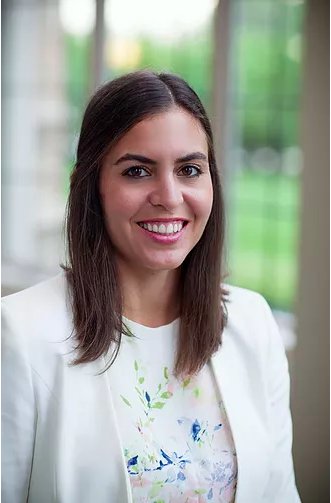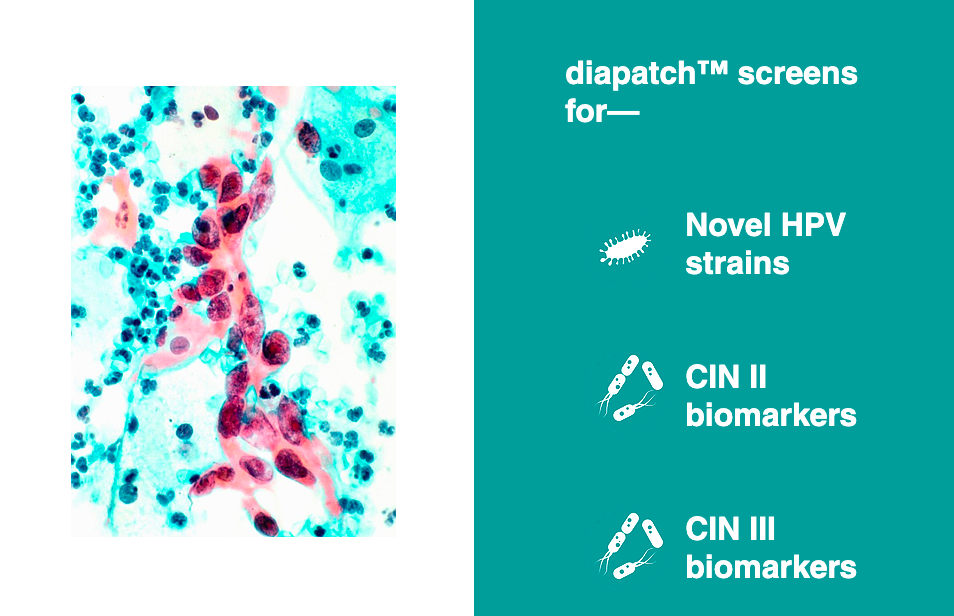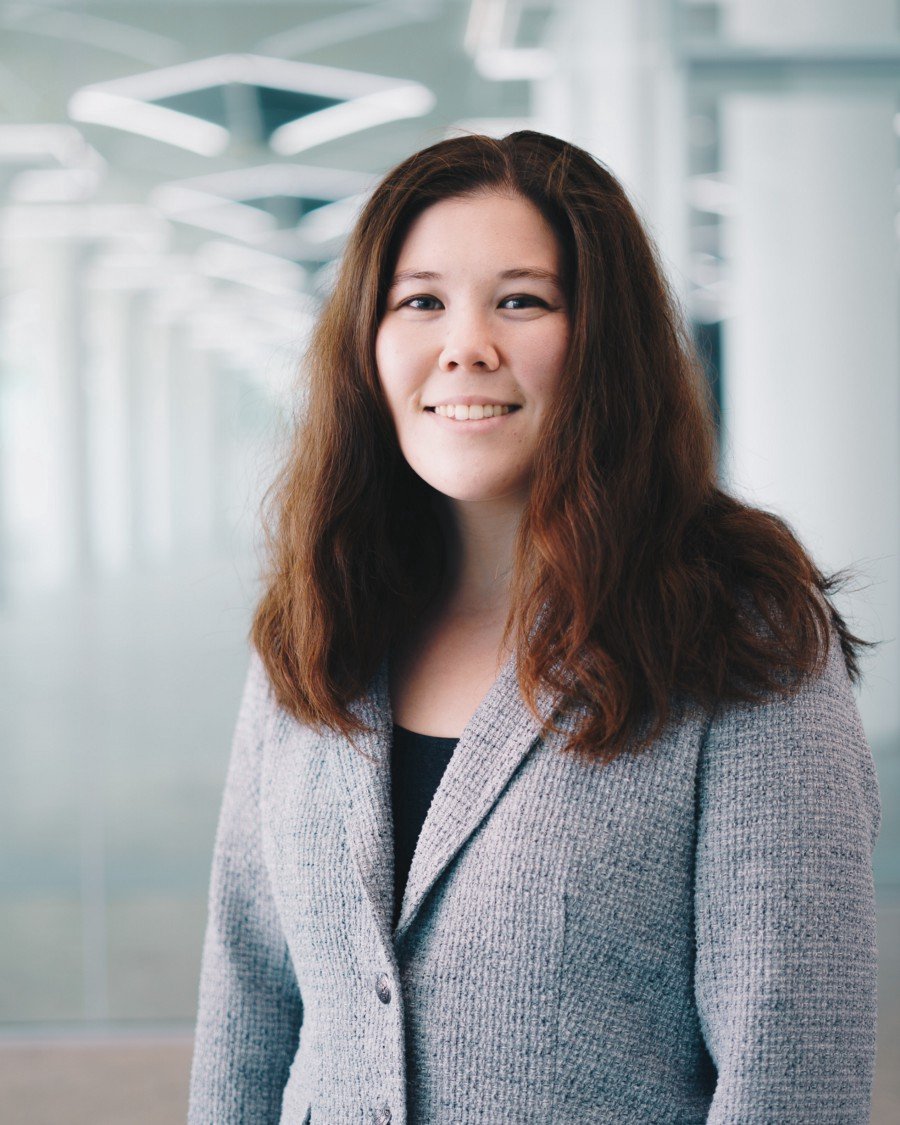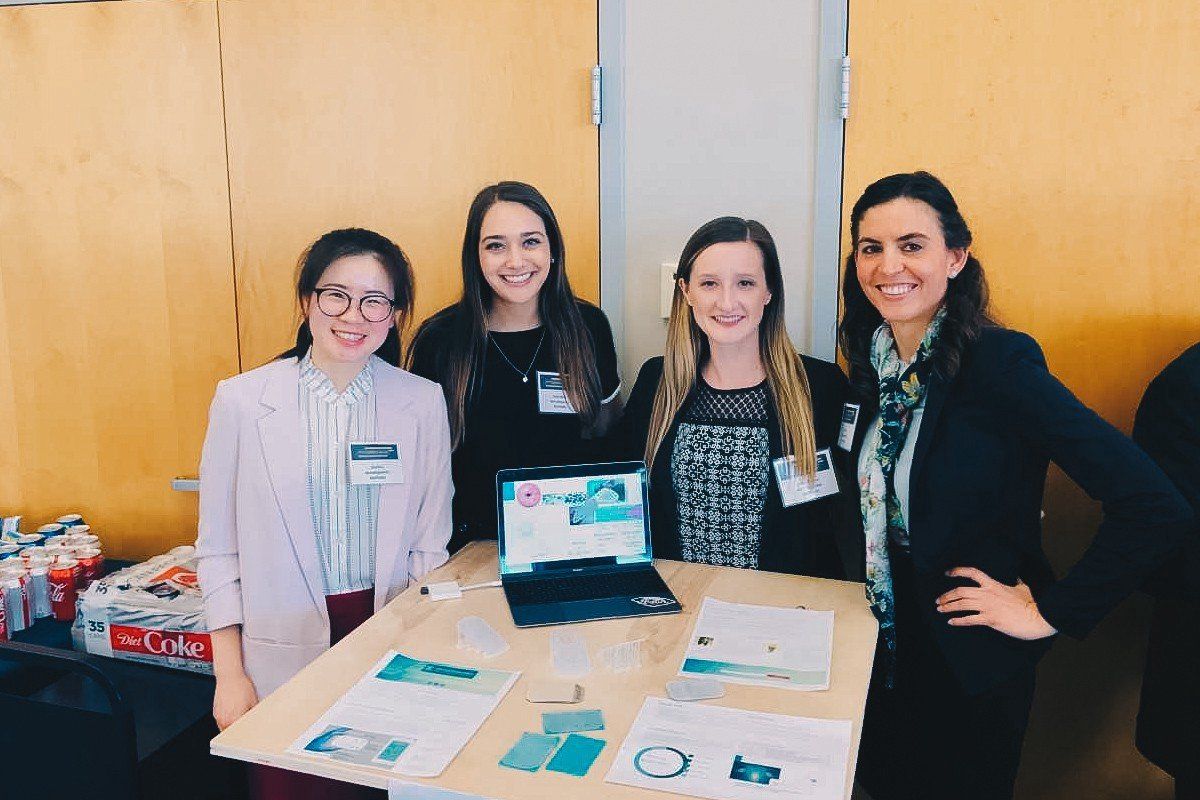enFocus Jul 25, 2019 · 6 min read
At the 2019 McCloskey New Venture Competition, a business start-up competition that’s been organized by the University of Notre Dame since 2001, three semi-finalist teams were represented by enFocus Fellows.
With over 170 teams entering the competition, only 30 teams were selected to pitch in the semi-final round to a panel of judges that included venture capitalists, entrepreneurs, and business leaders from across the nation. The three teams were dermadiagnostics, DuneMat, and Evercrate. Read more to learn about the companies and the entrepreneurs’ experiences at one of the nation’s most prominent start-up competitions.
dermadiagnostics

Eydis Lima, an Innovation Fellow and a 2018 graduate of Notre Dame’s ESTEEM program, is the Founder & CEO of dermadiagnostics, a healthcare company focused on innovating cervical cancer detection. The startup aims to change the way physicians detect cervical cancer in women. Traditionally, the standard of care has been the Pap Smear, which is an invasive procedure for patients. Dermadiagnostics’ flagship product is diapatchTM, a wearable, diagnostics patch that patients wear on the pelvic area able to detect high-risk cervical cancer and pre-lesions. Since this gynecologic disease impacts many women nationally and kills over 266,000 worldwide yearly, the company’s goal is to facilitate improved early detection by encouraging patient compliance and being the first step prior to the Pap Smear or a colposcopy.

Lima first thought of the diagnostics patch idea and met her co-founders, both gynecologic oncologists, while she was conducting research at the Yale School of Medicine.
“While I was working on pre-clinical studies for ovarian cancer, I couldn’t help but notice how late the tumors for most gynecological oncology patients were detected,”
Originally, the patch was thought to be used broadly to help physicians monitor patient compliance of clinical trials, but after enrolling in the ESTEEM program and participating in an accelerator in Austin, TX, the chemical engineering major found an entry market in cervical cancer detection, due to the current practice often resulting in invasive, late detection.
According to Lima, enFocus has allowed her to pursue her startup aspirations while also being able to work on challenging projects in the South Bend-Elkhart community. “I think the main reason I was attracted to enFocus was because of the 70–30 model that allows all fellows to take on the demands of consulting-oriented projects and balance the risk and demand of launching an early-phase startup, as it is our case,” said Lima. “Additionally, it is extremely inspiring to be around other young professionals who are passionate about solving complex problems and via innovation generating solutions to build better communities.”
dermadiagnostics received 3 prizes at the McCloskey New Venture Competition, including awards such as the Best Woman Owned Startup Award, winning a total value of $60,000 in prizes. Altogether facilitating the startup to begin the stage of technology development and be enroute to securing SBIRs from both the National Science Foundation and the National Institute of Health.
DuneMat
Dune Mat is a sustainable outdoor company that is currently developing a camping mat made from recycled cardboard and nylon. Recycled cardboard has been used to develop a type of home insulation material called cellulose insulation. First-Year Fellows Ben Johnson, Caroline Farrington, and Vojislav Tatarevic found that cellulose material has other applications, specifically for the camping and outdoor market, where eco-minded consumers ironically have limited options for sustainable products.

By using cellulose insulation in replacement of traditional foam and covering it with recycled nylon for the outer-shell, the team was able to develop a functional camping mat made completely from recycled material.

“The fact that we were able to connect two problems in the world and create some sort of solution that addresses both was an incredible process to go through,” said Farrington. “We saw that there was a lack of markets for recycled cardboard and that there was a whole group of consumers in the outdoor space whose demands weren’t being met by the current industry. We believe Dune Mat’s cellulose insulation can potentially be a game-changer for outdoor companies and consumers alike.”
In just the past four months, Dune Mat has developed four prototypes, conducted validation interviews and surveys, and have performed user-testing on their prototype’s comfort level. The team has also established a partnership with local non-profit Sew Loved to help produce units for early adopters. Because of the team’s thorough investigation of gaps in the outdoor market, one judge commented, “The team has done a wealth of research on the market size, growth opportunity, and market segmentation. It seems that their solution is both novel and even capturing a small market segment would be profitable.”
“I am absolutely proud of our team and the amount of work we put into DuneMat,” said Tatarevic. “I think we can go far, and one of the reasons why is because of the support we’ve received from our ‘fellow Fellows.’ They’ve been so helpful in giving feedback for our pitch and refining who are target market is.”
The team plans to potentially release DuneMat on Kickstarter to validate demand for the product even further and to send prototypes to campers for testing in the outdoor environment.
Evercrate
Anna Volk, Caroline Farrington, and Lara Grotz, all first-year fellows at enFocus, with Connor Smith from Notre Dame’s ESTEEM program, are co-founders of Evercrate, a company that strives to move eCommerce to a sustainable future by using reusable shipping containers.
Evercrate was created specifically to address the growing amount of cardboard waste that is largely a result of the emergence of eCommerce, which has moved the burden of packaging from retailers, who recycle more than 90% of their cardboard, to end consumers, who recycle less than 40% of their packaging. Almost everyone they interviewed in their discovery process could relate to the mountains of cardboard that this translates to in people’s homes.
As the Evercrate team was building their business plan, they were confronted with many challenges for their launch strategy but looked at the process as a learning experience instead.
“One of the things we realized is that we hit on a really big problem in the community and the world, and we have this idea to address a small piece of that,” said Volk. “But trying to translate a small problem and idea into a global solution is a lot more difficult than we anticipated. This process has been amazing because it has given us the opportunity to iterate on a number of business plan models before narrowing down on one that we think has the potential to be successful.”
While the team did not move on to the finals, all fellows involved took away lessons from the experience that they will carry with them throughout their respective professional careers, especially that anyone has the power to bring change. “Innovation shouldn’t just be limited to huge corporations,” said Grotz. “For me, this experience has shown that anyone has the potential to come up with a really great idea and that it’s not limited to one major or one career. It’s just a matter of putting in that grit and that work and that sweat to bring an idea to life.”
Written by enFocus Fellow: Ben Johnson
